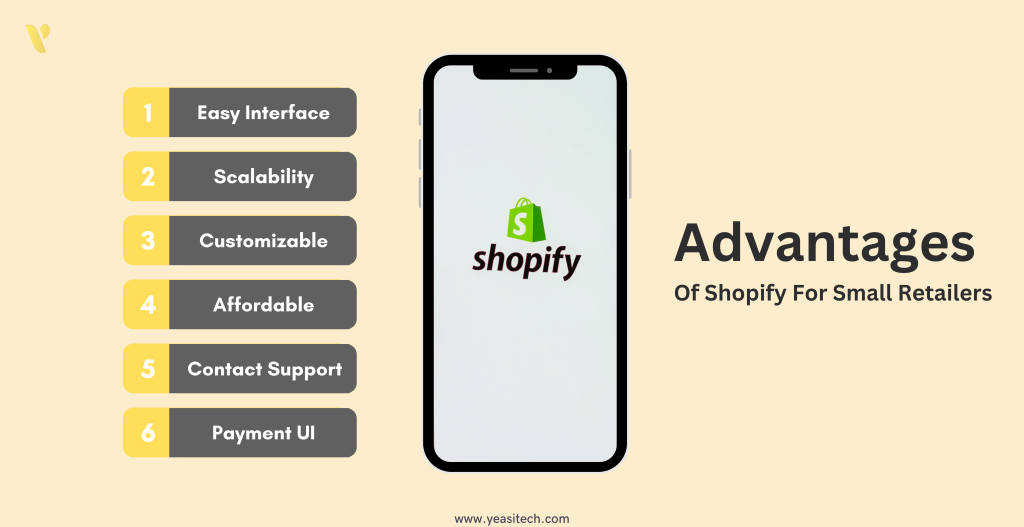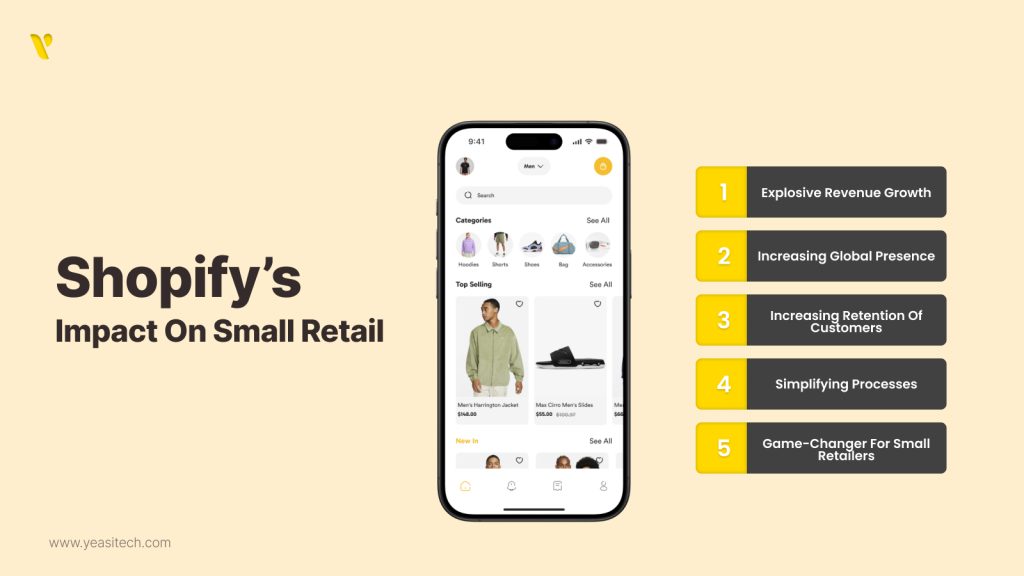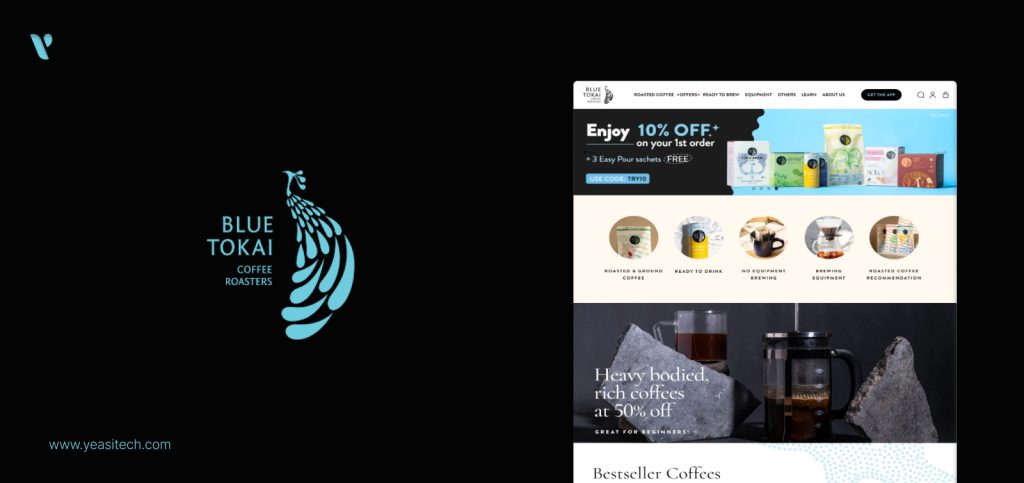From Local to Global: Shopify’s Transformative Impact on Small Retail Businesses in 2025

Shopify is a useful partner in small retailers’ e-commerce journeys in 2025, not just a tool. With its user-friendly interface, dependable support, and small business-oriented features, Shopify has emerged as the leading option for companies wishing to grow while maintaining their distinctive brand identity. For small business owners, Shopify is more than just a platform; it’s a reliable partner for expansion and success.
Let’s look over in more detail how Shopify is changing the industry in 2025 for small retailers:
Shopify started in 2006 as a simple website for selling snowboarding gear. Today, it has become one of the biggest e-commerce platforms in the world, helping over a million businesses sell online. Many small businesses choose Shopify because it’s easy to use, packed with useful features, and can grow with them as they expand.
Businesses in India using Shopify have the potential to generate a wide range of earnings, depending on their size. Below is a breakdown in general:
Shopify-powered businesses in India can make a wide range of profits, depending on the size of the company. Companies can expand over the long run and optimize revenues using Shopify’s complete and adaptable features.
Shopify was created in 2006 as a simple online platform for selling snowboarding equipment. Shopify is a big name in e-commerce, helping over 1.7 million businesses around the world sell online. What makes it special? It’s super easy to use, grows with your business, and comes packed with features designed especially for small businesses.

The advantages of Shopify for Small Retailers are as follows:
Shopify is changing the face of e-commerce in 2025 for small businesses. Shopify is enabling these companies to achieve success in an increasingly competitive sector by providing them with a broad resources and a simple platform. Here’s a closer look at how Shopify is driving significant change for small retailers this year:

Shopify’s small shops are seeing incredible revenue growth. Recent Data shows that these firms’ revenue has grown by an average of 280% every year. Customized shopping experiences and targeted email campaigns are just two of the strong marketing and sales tools that Shopify provides to help small businesses compete on a higher level.
In 2025, Shopify is instrumental in helping small retailers expand globally. 40% of small retailers on the platform have been able to expand into foreign markets because of Shopify’s multi-currency support and localized payment alternatives, creating new revenue streams and expanding their worldwide brand visibility.
For small businesses on Shopify, customer retention has risen dramatically—60% of them have seen a 200% increase in retention rates. Stronger customer ties are promoted through Shopify’s CRM solutions, which include automated email marketing and loyalty programs, which play a major role in this success.
Shopify has been seen as increasing small shops‘ operating efficiency by 45%. Small businesses can focus on development rather than routine tasks because of the platform’s automation features, which include inventory management and order fulfillment.
In 2025, it will be hard to ignore Shopify’s impact on smaller retailers.
“Shopify has been a game-changer for small retailers, empowering them to thrive in the competitive e-commerce landscape of 2025.”
– Tobias Lütke is CEO and co-founder of Shopify
These improvements show how Shopify can support small businesses in growing significantly, improving customer satisfaction, and simplifying operations—all of which position them for long-term success in the rapidly changing e-commerce industry.

Shopify is a top choice for small retailers for several reasons:
Shopify is in the lead of the growing trend of mobile commerce in 2025. While managing your business on the go, you can use mobile-friendly themes and a mobile app offered by the platform to make the experience more convenient for you. Customers preferring mobile devices for purchases will be attracted to your business, ensuring a flawless appearance and functioning on their phones.
Small retailers can use Shopify’s modern marketing capabilities to attract and retain customers. Features like social network integrations, email marketing automation, and SEO optimization tools make it simpler for you to reach your target audience. Retailers can make data-driven choices and monitor the success of their marketing initiatives using built-in analytics to increase sales.
Shopify understands that social media has emerged as an important sales channel. Retailers are able to open stores directly on social media networks like Facebook and Instagram because to the platform’s seamless integration. Small shops may reach a wider audience and increase traffic to their online stores with the help of this collaboration.
Shopify uses artificial intelligence to provide insightful data in e-commerce. The AI-powered solutions on the platform enable small retailers to run their businesses to improve customer experience by providing customized suggestions, analyzing consumer behavior, and actionable insights.
Small businesses need to manage their inventory effectively, and Shopify makes this easier with its broad inventory management solutions. Shopify for Small Retailers may simply handle orders, keep an eye on stock levels, and set up regular warnings for low inventory. This keeps your shop operating efficiently by preventing stockouts and overstocking.
Real-world success stories provide the finest example of how Shopify for Small Retailers have influenced their business. Several small retailers used the platform to attain exceptional expansion and prosperity. Here are a few examples:
The company 2x its online sales, increased revenue. By using Shopify’s built-in recovery tools, they lowered cart abandonment, which increased conversion rates. They also used Shopify’s advanced reporting tools to manage their inventory more easily, improving operations and stock control.

A tiny coffee a business catering to a specialized clientele, Blue Tokai Coffee Roasters was first established and is renowned for its freshly roasted coffee beans. The company realized that it needed to improve its online presence as the e-commerce industry grew and customer purchasing habits changed. Their needs for customisation and scalability were met by Shopify.
Blue Tokai used Shopify’s customization tools to create a simple, brand-aligned user experience, increasing client engagement. They launched a coffee subscription model with Shopify’s flexible payments, ensuring customer convenience and steady revenue. Shopify’s analytics further enhanced their marketing by offering insights into customer behavior.
Blue Tokai now operates in several cities and delivers all over India. By using Shopify’s tools, they increased their e-commerce sales by almost 200% in just two years and built a special community of coffee lovers.

Chumbak, a company popular for its distinctive lifestyle goods—began as a physical store but soon realized how difficult it would be to operate only physical locations in India. A system that could link their conventional and online sales channels was necessary as they attempted to join the growing e-commerce market.
Chumbak used Shopify to build a unified shopping experience, linking their physical store with their online platform. This gave customers the same personalized service both in-store and online. Shopify’s app system helped Chumbak sync online sales with their in-store inventory, allowing customers to shop smoothly across both channels.
Using Shopify, Chumbak increased its online sales by more than 40% in just the first year. The platform’s analytics tools helped them understand customer behavior better, allowing the brand to adjust its marketing and product choices to target specific groups.

Headphone Zone is a special Indian store that focuses on premium headphones and audio gear. It started as a small offline shop but soon saw the chance to reach more customers online. By switching to Shopify, the brand grew rapidly.
Shopify’s unique packages and customization made Headphone Zone stand out. s marketing tools, like email campaigns and retargeting ads, boosted customer engagement and repeat business. Shopify’s inventory system also efficiently managed the extensive product line and provided accurate stock updates.
Headphone Zone’s sales skyrocketed by 300% after migrating to Shopify. They now serve customers across India, with Shopify enabling them to compete with larger players like Amazon in their niche market.
In 2025, Shopify has surely changed the way small retailers perform e-commerce. For businesses wishing to establish or improve their internet presence, its strong features, reasonable price, and simple to use interface make it a compelling choice.
Shopify is making it easier for small shops to succeed in the digital era by simplifying e-commerce and focusing on constant innovation. Shopify can be the answer you’ve been searching for if you’re a small shop prepared to grow your company.

For more insights and tips on e-commerce and digital marketing, check out our previous blogs at YeasiTech.
Shopify offers a user-friendly interface, affordable pricing plans, scalability, comprehensive support, and integrated payment solutions. These features make it an ideal choice for small retailers looking to streamline their e-commerce operations.
Shopify offers several pricing plans starting with the Basic Shopify plan. Prices vary depending on the features and support level you need, but there’s a plan to suit most budgets. It’s advisable to review the pricing options and choose the plan that aligns with your business needs.
Yes, Shopify provides a range of customizable themes and design options. You can personalize your store’s look and feel to match your brand, making it easy to create a unique online presence.
Shopify provides 24/7 customer support through live chat, email, and phone. This ensures that you have access to help whenever you need it, making it easier to resolve any issues that may arise.
YeasiTech is a trusted IT service partner with 8+ years of experience, empowering 250+ businesses with scalable web, mobile and AI solutions.
Explore related topics to broaden your understanding and gain actionable insights that can transform your strategies.